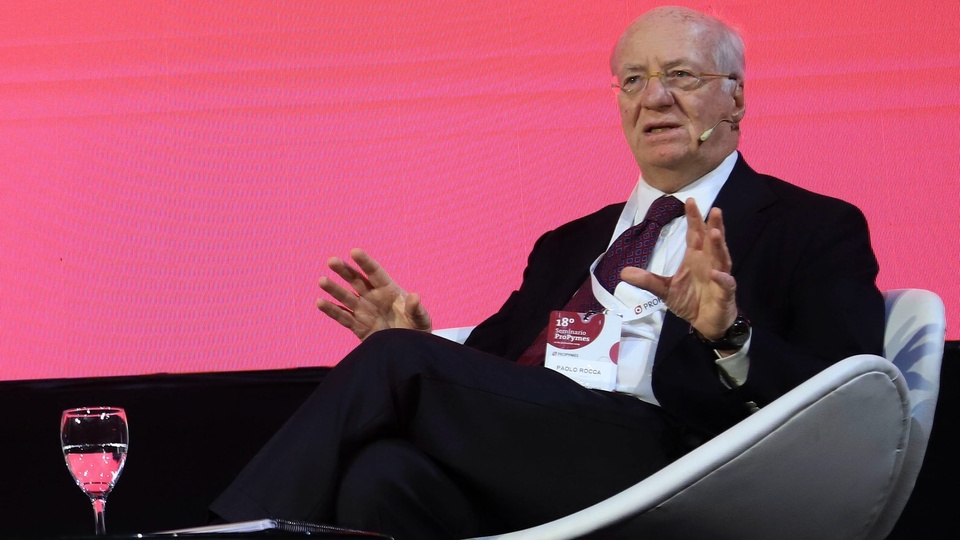
Techint CEO Paolo Rocca found new reasons to go against China, his only global competitor in manufacturing and selling pipes. Argentina added another chapter to Italy’s decades-long unilateral war with the United States and an international forum in which the businessman called on regional powers to form a front against China. At the ACO Steel Congress in São Paulo, Brazil, Rocca warned against prioritizing Latin American economies and blamed China for an undemocratic state or an “unprecedented transfer of production based on its policies. Authoritarian”.
The owner of Techint says that as a result of the primacy, Latin American economies sell their products without added value, which means the backwardness of the countries and the weakness of their institutions. The chairman of the holding company, speaking before about 700 businessmen, the largest representative of the steel industry, and pointed against China: “Never in history has there been such a transfer of production in such a short period of time,” he said. Thus, he attributed expanding industrialization to the stagnation of the region’s economies and its impact on governance.
“State Hypertrophy”
He also noted the “hypertrophy of government and the confusion of distorting taxes” as an obstacle to investment and private initiative. Rocca’s words are part of an environment where steel consumption is not growing “because our economies grow very slowly, in a model that privileges primary products and the financial and service sectors.” “15 years ago, Mercosur economies accounted for 4.1% of global GDP. In 2023, they will be only 3%. In terms of GDP per capita, we have grown less than 10% in the past 15 years. Meanwhile, growth among developed countries is 25% in the US and 25% in Europe. 15%,” he explained.
“The entire developing world: India and China have come close to doubling their GDP per capita over the same period. This is a picture of a collective failure that has had very serious consequences for institutional quality,” Rocca said. “The hypertrophy of the state led to adverse effects, and the chaos of distorted taxes was able to stop investment and private enterprise,” he warned.
“Impossible to compete”
“If we look at the productivity metrics of our countries, we see a major factor that has limited our growth potential: the primacy of economies and the reduction of the participation of industry in GDP and exports,” Rocca said. “In the last 15 years, the weight of the manufacturing sector in Brazil has continued to decrease until it reaches its current level, just 10%, compared to 17% in Europe or 20% to 25% in Asian countries and Mexico. China’s participation in world industrial production will increase from 5% in 1995 to 2020. “Increased to 35%, never in the history of the world has there been such a transfer of production activity between countries,” he said.
In this situation, Rocca resumed the same speech that he takes to all forums, and it aims to create an international alignment of countries to stand against China, the biggest global enemy of Argentina and the most important steel company in the world. So the owner of Techint said that because of the prices, it is almost impossible to compete with the Chinese companies.
“Competing with China over the past 30 years has been substantially impossible for a number of reasons,” Rocca said. “The apparent complementarity between our economies, which need raw materials and want to export manufactured goods, and our natural resource-rich countries (agriculture and minerals) is completely asymmetric. China wins and Brazil loses. Chinese imports help control inflation in our countries, but they are our industries. have a negative impact on sectors, and they have even worse effects on investment and growth. Finally, he concluded, “decentralization and reducing dependence on raw materials and goods exports is an extraordinary opportunity for Latin American economies.”

“Introvert. Thinker. Problem solver. Evil beer specialist. Prone to fits of apathy. Social media expert. Award-winning food fanatic.”





More Stories
First Cases of Bird Flu Confirmed in Northern Elephant Seals in California
Two influencers drown after refusing to wear life jackets: “ruining selfies”
Uruguay 2024 election results: who won and when is the second round | Waiting to know whether there will be a runoff or not